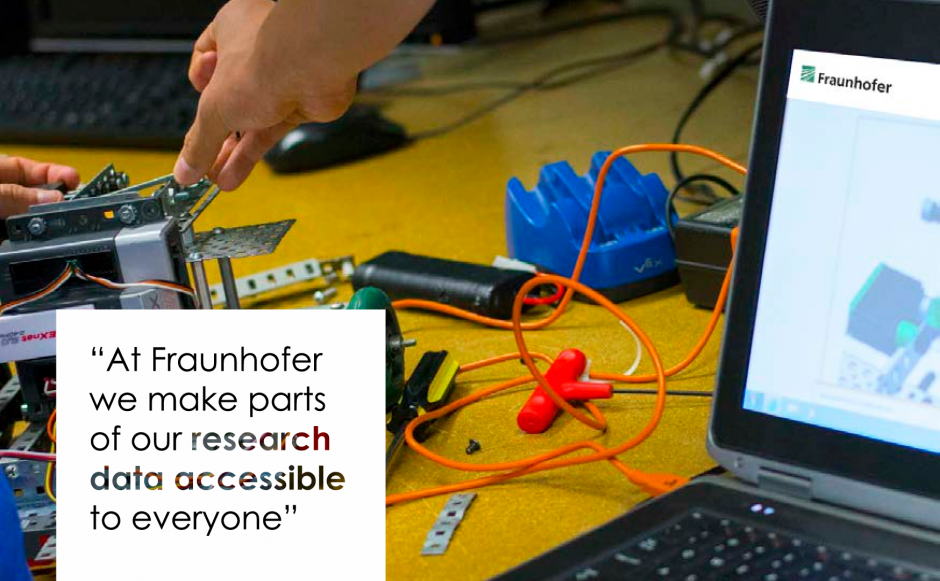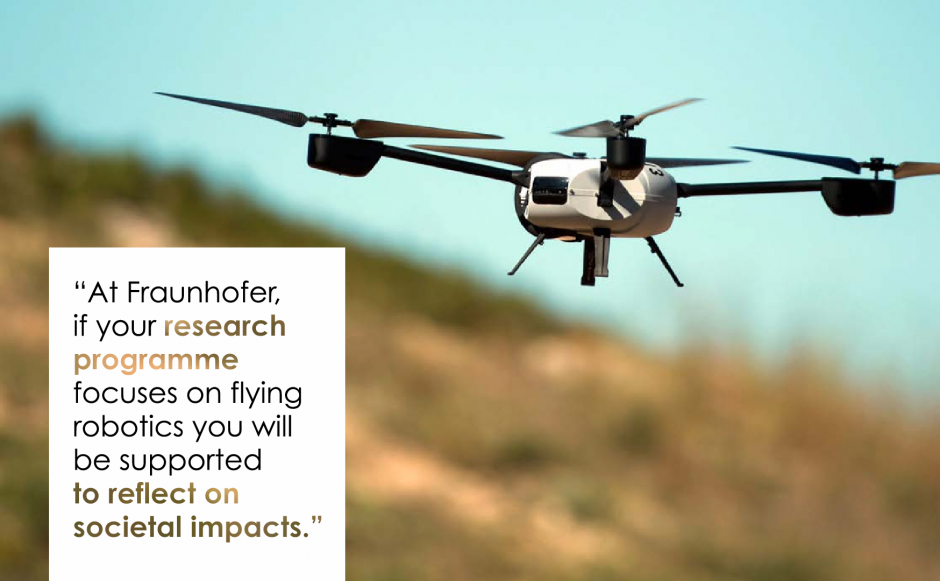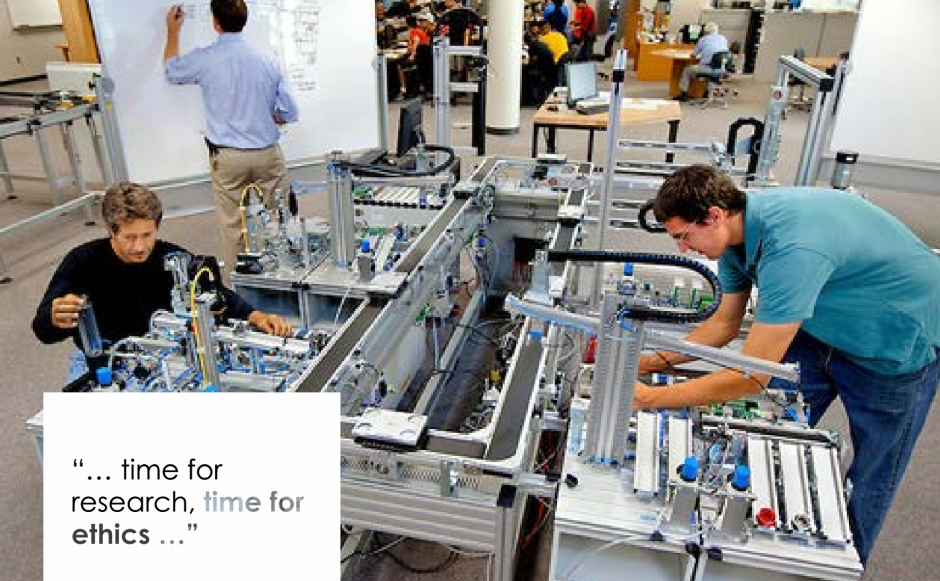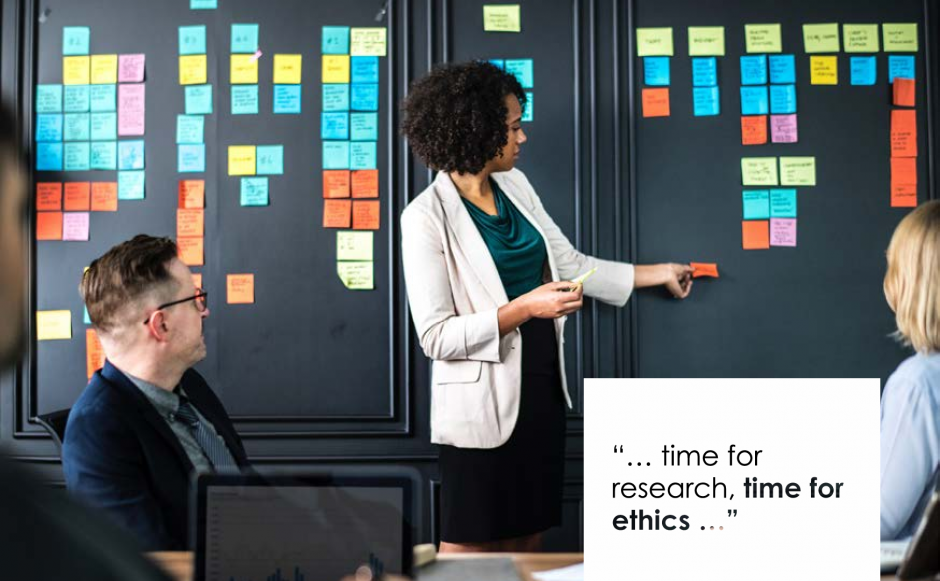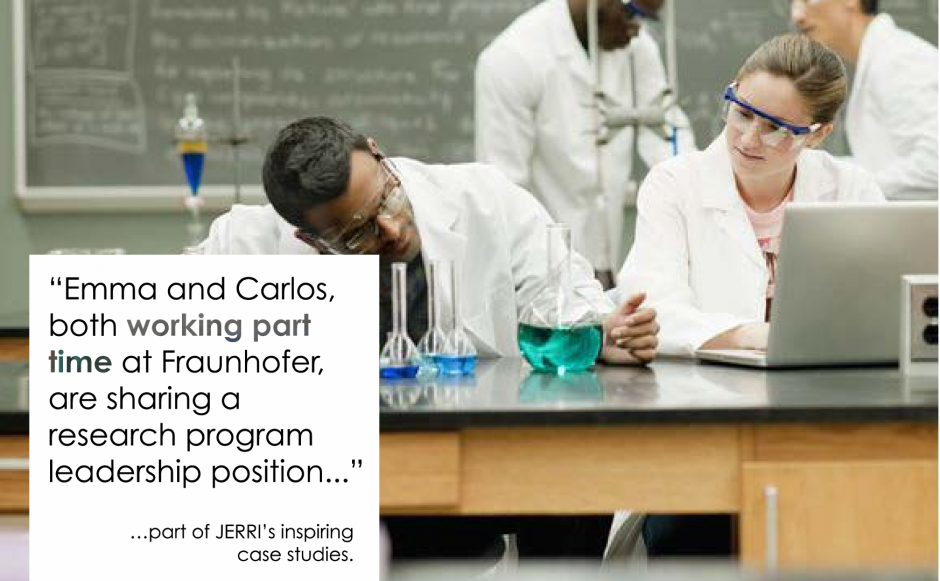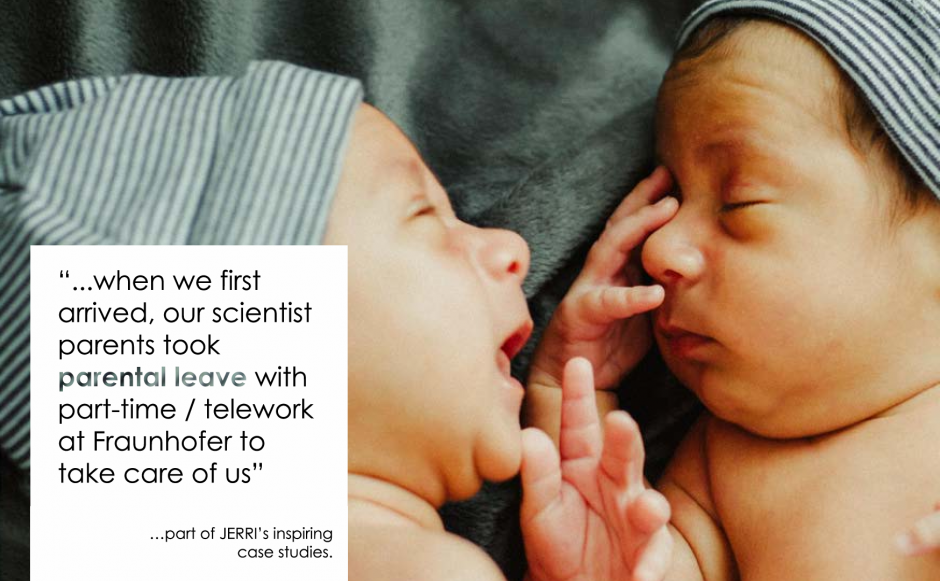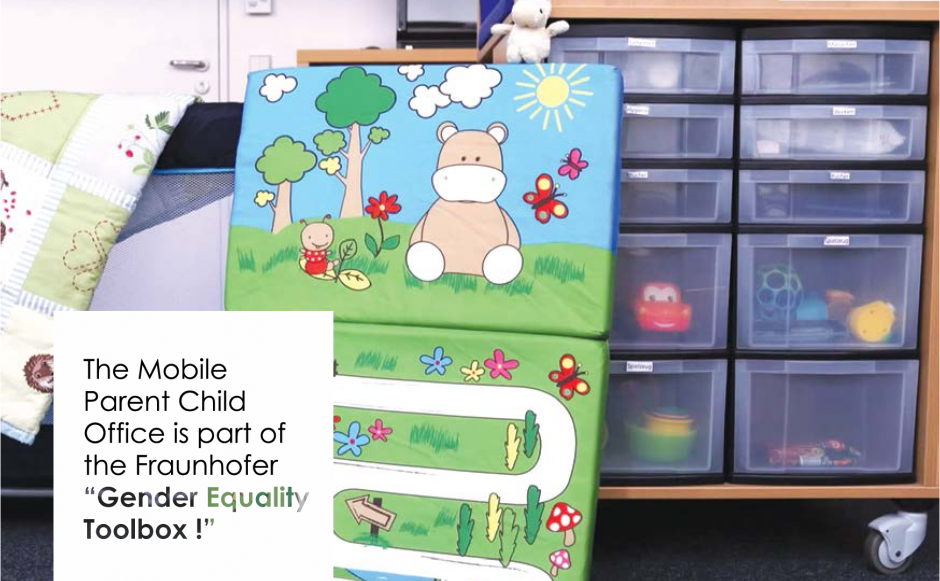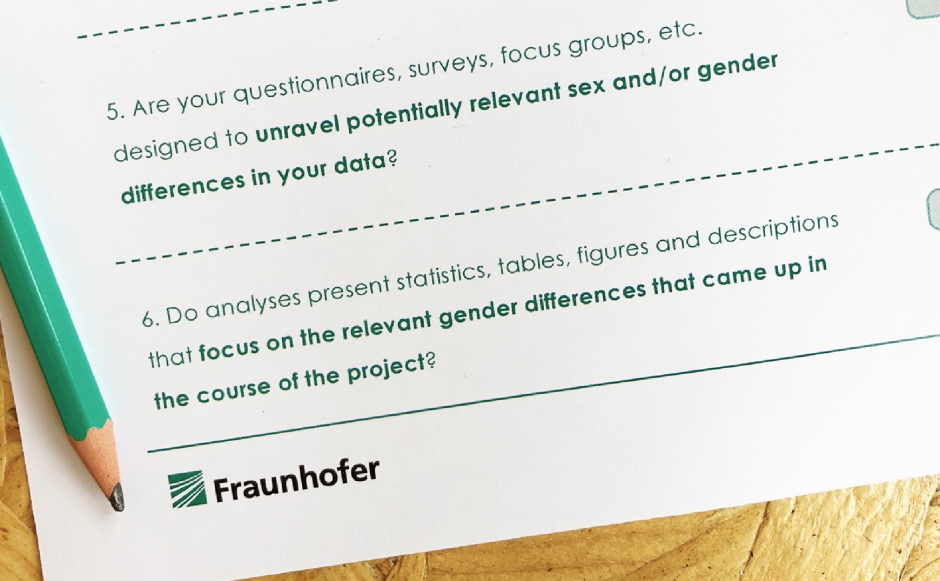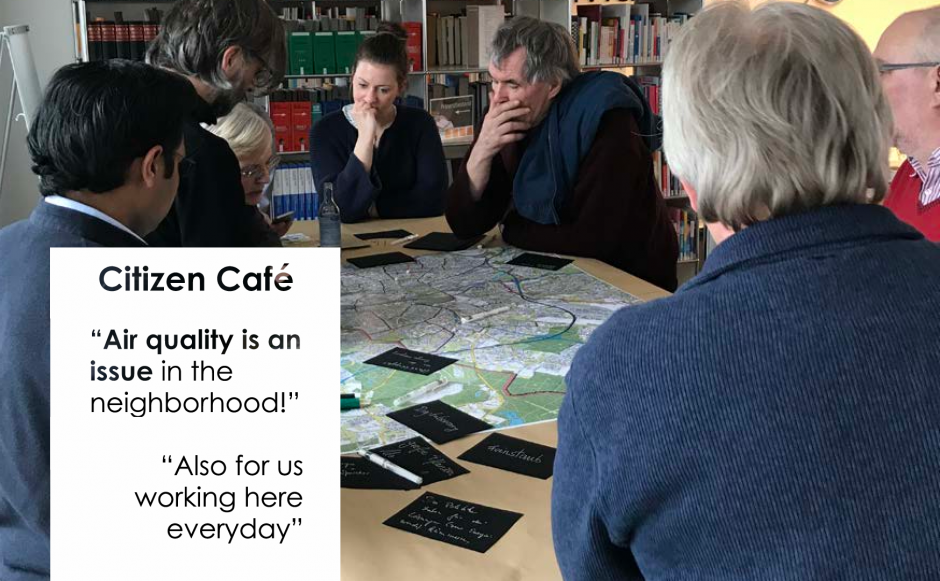RRI Goals and Activities implemented in Fraunhofer
The following section summarizes the agreed RRI goals and describes concrete pilot activities that emerged from them. Due to the different nature of both organizations and their distinct degrees of RRI institutionalization, the specified goals and pilot projects take different shapes. In this case the golas and activities of Fraunhofer are considered. If you what to find out more about the specific goals and pilot projects read more in:
Fraunhofer Goals and Activities for Ethics
The agreed long term goals for ethics consist of three major points:
- Responsibility: Fraunhofer integrates and lives up to ethical responsibility (“thinking mid- and long-term”),
- Enabling: Fraunhofer staff is enabled (in terms of ‘competences’) to live up to ‘ethics’,
- Value pluralism: Fraunhofer creates and supports an open, constructive and respectful culture of dealing with conflicts, e.g. via clearing agents, consultancy services, etc.
The following projects were implemented to achieve these goals.
Ethical screening and consultancy for project proposals of internal research programmes.
- This activity aims to foster institutionalisation of responsibility orientation by integrating a reflection of ethical aspects and societal impacts into the setup of Fraunhofer’s internally funded strategic research projects. It consists of establishing a guideline for the assessment of the ethical relevance of a research project.
Multiplying orientational knowledge on research ethics in the research management qualification programme 'Forschungsmanager'
- This pilot aims to sensitize Fraunhofer researchers to the ethical dimensions and social implications of R and I and to built competences in recognizing and addressing such issues.The pilot is shaped in the form of a discussion format in which a concrete research project and the respective ethical principals are discussed.
Fraunhofer Goals and Activities for Gender
The following long term goals for the RRI Dimensions of Gender have been chosen.
- Permanent provision of orientational knowledge on how to best deal with gender-related issues in different, concrete situations; directly accessible for other RTOs.
Motivation and enabling of all actors affected to live up to gender equality and diversity.
- Awareness raising and development of individual capabilities.
Projects carried out in this context:
- Gender Diversity Toolbox: The existing Toolbox from the previous EU funded project STAGES contains good practical examples on the topic of equal opportunities. It shall be further developed, opened up and internationalized.
- Role models at Fraunhofer: Role models (people who work for the Fraunhofer-Gesellschaft and who have found an individual way to reconcile work and private life) should be identified and interviewed. The results are integrated into the Gender Diversity Toolbox and an electronic booklet should be designed
- Gender in research content consciousness: The identification and (further) development of existing checklists and case examples dealing with gender in research content should serve to generate more attention for the (possible) relevance of gender aspects in research content. The prepared case studies and checklists were to be communicated via the Gender Diversity Toolbox.
Fraunhofer Goals and Activities for Open Acces
The general ambition of Fraunhofer is to undergone a fully fledged cultural transformation towards Open Access. This includes that most data and publications resulting from publicly funded scientific research are treated as commons, an open access platform is initialized and Fraunhofer researchers are present in Editorial Boards of Open Access Journals, to only name a few aspects.
In order to achieve these goal, the following projects were carried out.
Setting up and testing the open data infrastructure FORDATIS
- Fhe FORDATIS project aims to establish a seamlessly integrated open access system for capturing both research data and publications. The expected impact is a major transition towards a strong open access culture by expanding the Fraunhofer publication infrastructure towards research data.
Development of an open access business model and IP clarification support
- This pilot project aims to help researchers to make decisions in the way they strategically handle their research output and to make more use of open access.
‘Development and test of “open paragraphs” in research contracts’
- Complementary to the development of case-based open access business models, a paragraph in existing model contracts with industry that explicitly deals with open access issues, e. g. as part of the IP section, will be developed and tested. This will help researchers to discuss different ways of exploiting research data generated in the projects with their clients, including the possibility of open access.
‘Development and communication of a marketing strategy for Open Access at Fraunhofer’
- Via interviews, the practical implementation of open access were analyzed and documented. Based on this analysis and further available sources of information, a comprehensive marketing strategy for open access within Fraunhofer was developed.
Fraunhofer Goals and Activities for Societal Engagement
The general ambition of Fraunhofer within the RRI pillar of societal engagement is to institutionalize a culture of participation. Furthermore, Fraunhofer needs to become a permanent contact point for citizens and must be able to provide resources and space for participation. Lastly, Fraunhofer bears responsibility by pursuing a participative developed roadmap specifying the Sustainable Development Goals.
Pilot Project to achieve such long-term goals are:
- Citizen’s office: a series of citizens' meeting in which societal needs can be put forth to science
- Fraunhofer Societal Debate: The aim of this format is to facilitate a balanced public debate with actors from academia and civil society on a topic of current affairs.
- Stakeholder Avatar: Within this pilot, a web-based crawler concept will be developed. The algorithm will systematically browse the World Wide Web for relevant social interests on a Web-basis, and index it according to the specific scientific project’s interest. The results from this crawler will be used to construct a Stakeholder Avatar which will identify important constraints during the conception and planning of future research and provide an informed basis for the first physical engagement with the society.
- ‘UMSICHT-Dash-Button’: The use of an UMSICHT Dash Button or a mobile software application will be explored to enable sustained citizen engagement in environmentally relevant scientific topics on a continuous basis.

This project has received funding from the European Union's Horizon 2020 research and innovation programme under Grant Agreement No. 709747.

